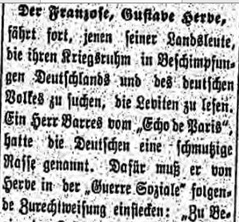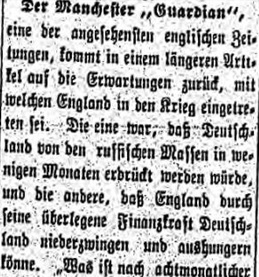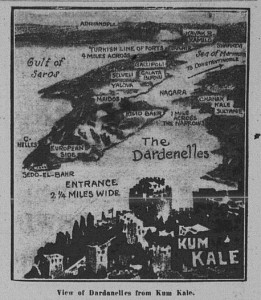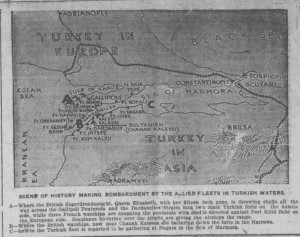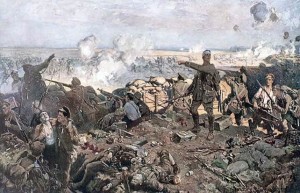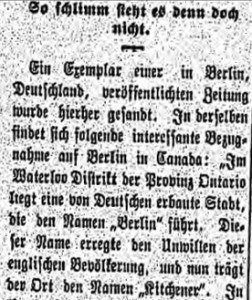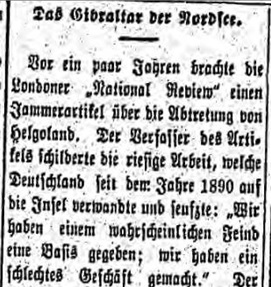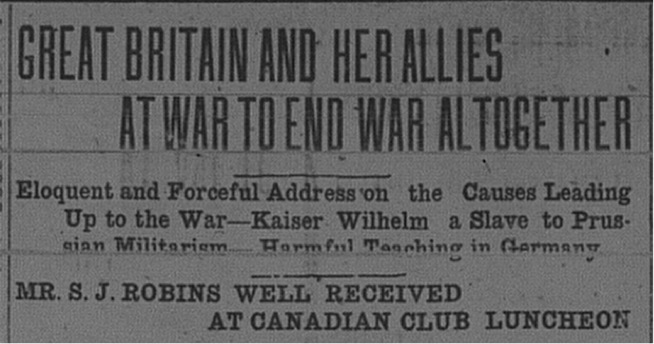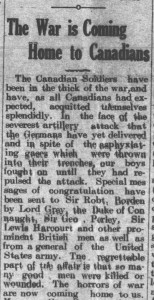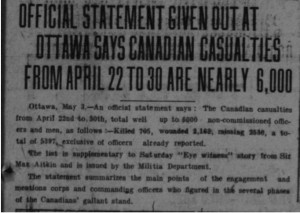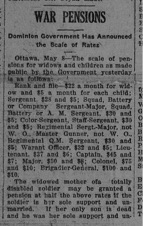The Frenchman Gustave Herve got angry, when people of his nation berated Germany and the Germans as a “dirty race”. He gave examples of Germans who did their best to help the French people during the war. One German recruit for example cared for his French neighbour in the next bed and gave him his food although he only had one leg left. Another German saved the life of seven French soldiers who otherwise would have drowned. Gustave Herve said that the Germans had a different sense of freedom than the French had, but that they still had lots of good characteristics such as bravery, patriotism, tenacity and a wonderful talent for organisation which made German industry a world leader. After that he mentioned the suffering and bloodshed the French nation brought upon Europe just a century ago through the revolution and Napoleon Bonaparte, without being called a “dirty race”.
(„Der Franzose, Gustave Herve…“, Berliner Journal, 21 April 1915)
